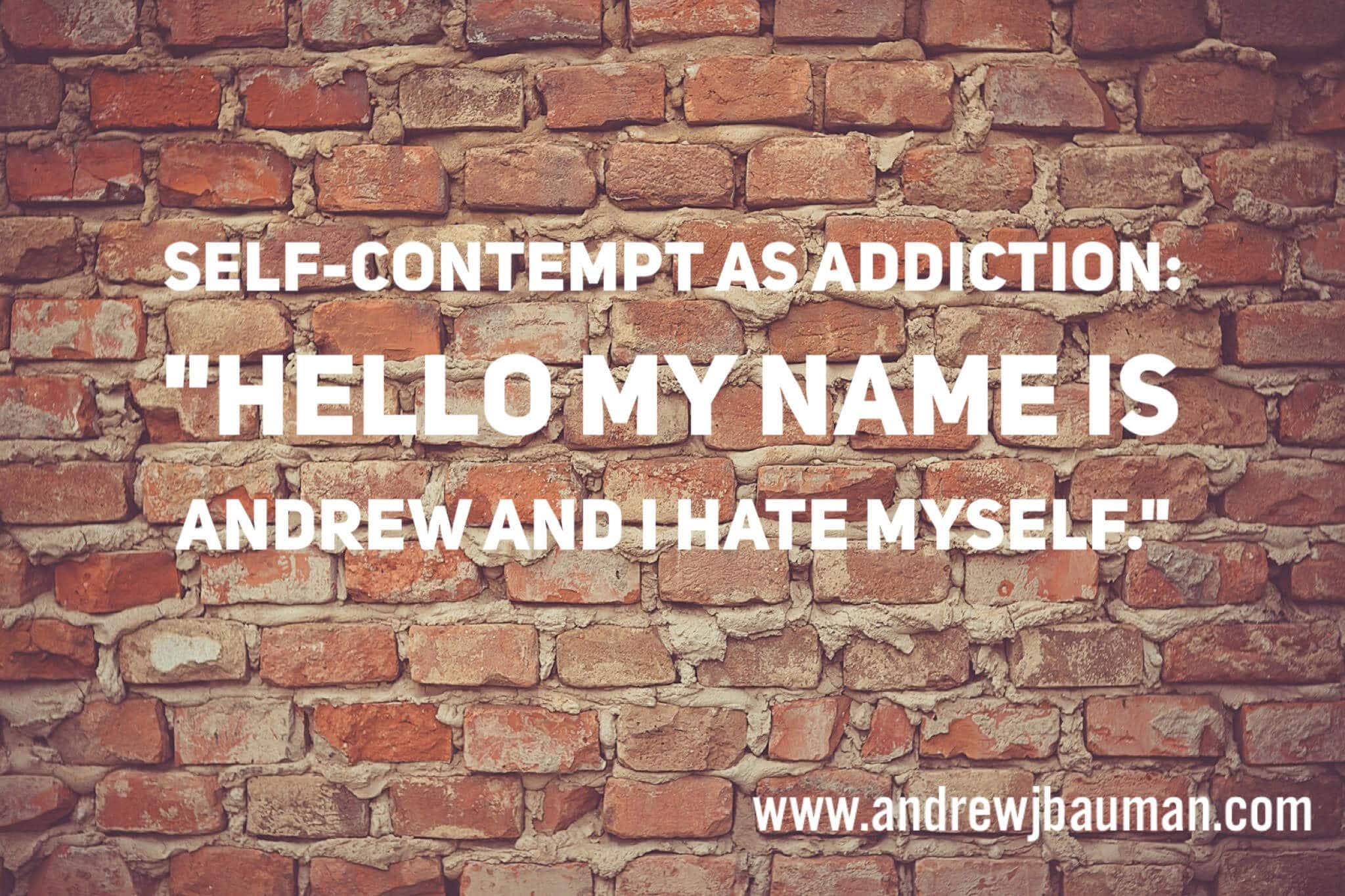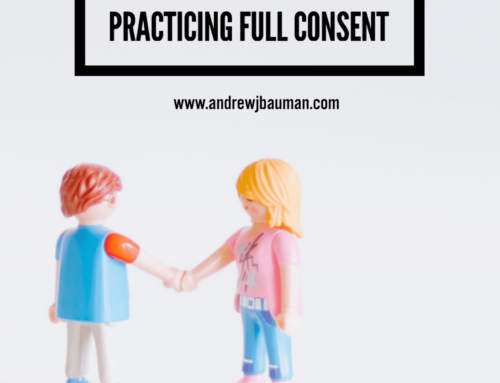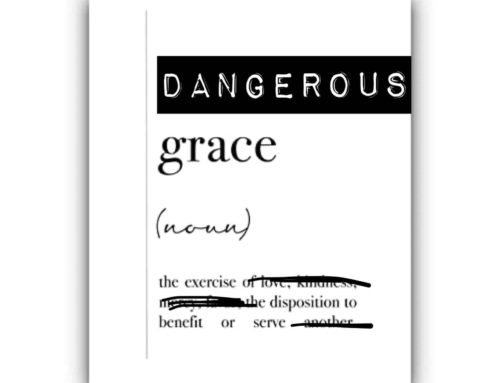Self- Contempt as Addiction:
“Hello my name is Andrew and I hate myself”
By Andrew Bauman
“And God said “Love Your Enemy,” and I obeyed him and loved myself.”
― Kahlil Gibran, The Broken Wings
“Every addiction is an attempt to slay hope” – Dan Allender
The word addiction is derived from the Latin term addīctus meaning, “enslaved” or “bound”. The American Society of Addiction Medicine defines it as “a primary, chronic disease of brain reward, motivation, memory and related circuitry. Dysfunction in these circuits leads to characteristic biological, psychological, social and spiritual manifestations. This is reflected in an individual pathologically pursuing reward and/or relief by substance use and other behaviors.” Addiction is the interplay between reward and relief that end up controlling all of the areas of life.
One addiction that rarely gets defined as so is that of self-contempt. In this article I argue that self-contempt serves all the same purposes as more classical addictions, as drugs, alcohol, gambling and sex, though it is much more socially appropriate, self- contempt is no less destructive. Christian circles get it even more backward in confusing self-contempt as a form of toxic humility (as I wrote about here, When Shame is Deeper Than Salvation)
Therapist Andy Ide defines self-contempt “as an active, degenerative, languaged presence within us that seeks to nullify goodness.” Self-contempt normally develops in our youth, whether we bear witness to the hatred (I remember my father always calling himself an idiot when he’d make a mistake) or if the venom was directed towards our very personhood. Similar to a middle-aged client telling me her mother would always make negative microaggressions towards the size, shape and the health of her body parts every time she would return home from college. I was not surprised the majority of our work for the next two years was around her deep historic contempt she had for her body and her commitment to be cruel to herself in efforts to make her internal mother proud. Meaning her mother’s voice had now become the prominent voice of contempt in her head. Her own voice had been lost and remained quieted by the abusive inner-critic that now reigned supreme.
Sadly my client’s story is not isolated; it’s my story as well. Why does there seem to be a pattern of self-destruction that is difficult to undo? What is going on inside our heads that makes healing so difficult? Why do we unconsciously sabotage the good transformative work we have done? What is going on inside of our brains is that negative emotion (shame, guilt, fear, and self-contempt) all stimulate the ventral striatum (nucleus accumbens), which is believed to play a huge role in the reward center of the brain i.e. addiction. (Roth, Kaffenberger, Herwig, & Brühl, 2014). Another way to say this is that negative emotions trigger the reward center in our brain causing an unconscious addiction to self-contempt and other toxic emotions we have become accustomed too. Basically, we like pain. (Wood, 2008). We enjoy making ourselves pay back a million dollar debt we will never be able too. This is where you see the category of sabotage come into play during the healing process. We must break free from our addiction to self-hate.
I remember a time last year when I relapsed and used self-contempt. I was standing with my friend Ben at the park watching our kids run wild around the playground. We were talking about getting our dad bods back in shape after a particularly cold and rainy winter in the Northwest. And I remember making a comment about my “fat ass”, and being able to make unique flapping sounds with my new love handles and needing to get my six-pack back. That was it, just a quick jab at my waistline and booty to get a cheap laugh from a friend. But what came next shocked me. Immense guilt swept over me. I had ridiculed my body in a demeaning way and it felt like I had relapsed into an old dark world I knew well. You see I have belittled myself a lot over the course of my life. What felt different this time was that I had done years of therapeutic work around my self-contempt and had already changed the way I engaged myself. I had stopped mocking my body, making fun of my height or my receding hairline. I had made a commitment that I would now honor myself. To honor what my body has suffered and to celebrate the healing I have received so far, I vowed to treat myself with an unfathomable holy kindness. So when I unexpectedly relapsed my body knew something was wrong, my guilt riddled me until I repented towards myself and to God because of my sin.
The addiction of self-contempt is a sly, insidious, and a cunning evil that will destroy you, if left acknowledged and unattended. For me to begin my journey towards healing I must first make a commitment to be on my own team, the world is cruel enough without me going against my successes. To be an advocate for myself, to speak words of life, not death, is to join God’s delight over me. I appreciate Dr. Dan Siegel acronym “COAL” which stands for being Curious, Open, Accepting and Loving toward yourself. (Siegel, 2015). What would it look like for you to admit you have a problem? Perhaps owning your self-contempt addiction? What would it mean to form a 12-step group for recovering self-contempt addicts? Wherever you find yourself in this addictive cycle may you choose kindness to your past flaws, current failures, and future achievements. My prayer for you is that you will take seriously this addiction with an open heart towards hope and love as you continue your healing journey.
Resources
Roth, L., Kaffenberger, T., Herwig, U., & Brühl, A. B. (2014). Brain activation associated with pride and shame. Neuropsychobiology, 69(2), 95-106.
Siegel, D. J. (2015). Brainstorm: The power and purpose of the teenage brain. Penguin.
Wood, P. B. (2008). Role of central dopamine in pain and analgesia. Expert review of neurotherapeutics, 8(5), 781-797.






